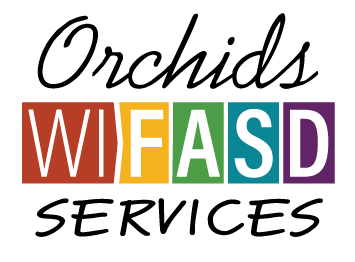Training and Information for Educators
Informational Packet
The following links will create a brief informational packet of documents for you to print or download and give to a teacher who has encountered or may encounter a child or adult with an FASD.
- Cover Page
- Differences Between FASD & Autism
- Understanding Behaviors of Fetal Alcohol Spectrum Disorders (FASD)
- Overlapping Behavioral Characteristics & Related Mental Health Diagnoses in Children
FASD-Informed Certificate
Spend 2 hours reading and viewing the resources on this page. Then take a short quiz and obtain your certificate. Coming soon!!
Issues
- Although studies have shown that 2-5% of school-age children in the United States have an FASD, and it frequently creates significant learning difficulties, it is not included as one of the special education need categories in the IDEA
- Many children with FASD are not diagnosed so they are at risk of being blamed for intentionally refusing to complete assignments when they actually are unable to and at the same time they don’t receive the supports that their actual disabilities entitle them to
- Teachers are not trained to look for or to provide accommodations for student with an FASD
- School Psychologists are not trained to assess for FASD
- Children with FASD often have a normal IQ, are friendly, and are able to express themselves verbally – so their cognitive and sensory challenges go unrecognized
- Many children with FASD will end up dropping out of school
Resources
Michigan Coalition for Fetal Alcohol Resources, Education, and Support (MCFARES)
Webinars and Links to great resources for educators and parents
- FASD and educational strategies
- Reach to Teach
- Common strengths of students with FASD
- Specific Classroom Skills Affected by FASD
- Educational Strategies and Programs for Children with an FASD
- What Educators Need to Know about FASD
- Helping Teachers Understand Specific Needs of Children with an FASD
- Educating Students with FAS or FAE: Burgess and Streissguth
- Educating Children with FASD
- Common Classroom Symptoms of FAS
- FASD Educational Strategies Handbook
- Understanding FASD: A Comprehensive Guide for PreK-8 Educators
- Executive Functions in the Classroom: Part 1 -3
- Helping Teachers Understand Slower Processing Rates
- Helping Teachers Understand Issues of Cause and Effect Thinking and Impulsivity
- Improving Educational Outcomes in FASD Through Interagency Collaboration (MOFAS)
- Hey Teacher: Information for teachers about FASD
- Ain’t Misbehavin’: Understanding the behaviors of children and adolescents with FAS
- K-12 FASD Education and Prevention Curriculum (NOFAS)
- School: Learning and teaching styles
- Students with FASD: Simple strategies for behavioral and academic success
- Supporting students with FASD
- What’s working in FASD? Interventions that are making a difference
- Triumph: Educating students with an FASD
- FASD and practice: Issues for school administrators
- Students like me: 9-part series on FASD in education
- Evidence-based school-based interventions with students affected by FASD
Understanding Fetal Alcohol Spectrum Disorders (FASD)
A Comprehensive Guide for Pre-K-8 Educators
This guide is designed for every educator (e.g., teachers, special education teachers, resource specialists, speech and language specialists, school nurses, psychologists, and occupational therapists) who works with K-8 elementary and middle school level students. The guide addresses the impact of prenatal exposure to alcohol and how it affects the K-8 grade student.
What Educators Need to Know About FASD – free 76 page booklet
Eight Magic Keys: Developing Successful Interventions for Students with FAS
NOFAS Webinar – Students with FASD: Simple Strategies for Behavioral and Academic Success
Presentation by Deb Evensen, MA to teach educators more about their students with FASD, bringing awareness to the processing difficulties of the students, along with memory issues, problems understanding and much more.
Towards Inclusion: Tapping Hidden Strengths – Planning for Students who are Alcohol Affected
This is a PDF that gives educators resources to help their students with FASD achieve the most. Everything from academic issues that might arise in students with FASD, to strategies and instructions, to building a partnership with the guardians.
8 Magic Keys
Guidelines by Deb Evenson and Jan Lutke for how to construct a healthy learning environment for students with FASD. The PDF can also be found here.
